Behind the label: The UK program protecting what you plant, feed and eat
Behind the label: The UK program protecting what you plant, feed and eat
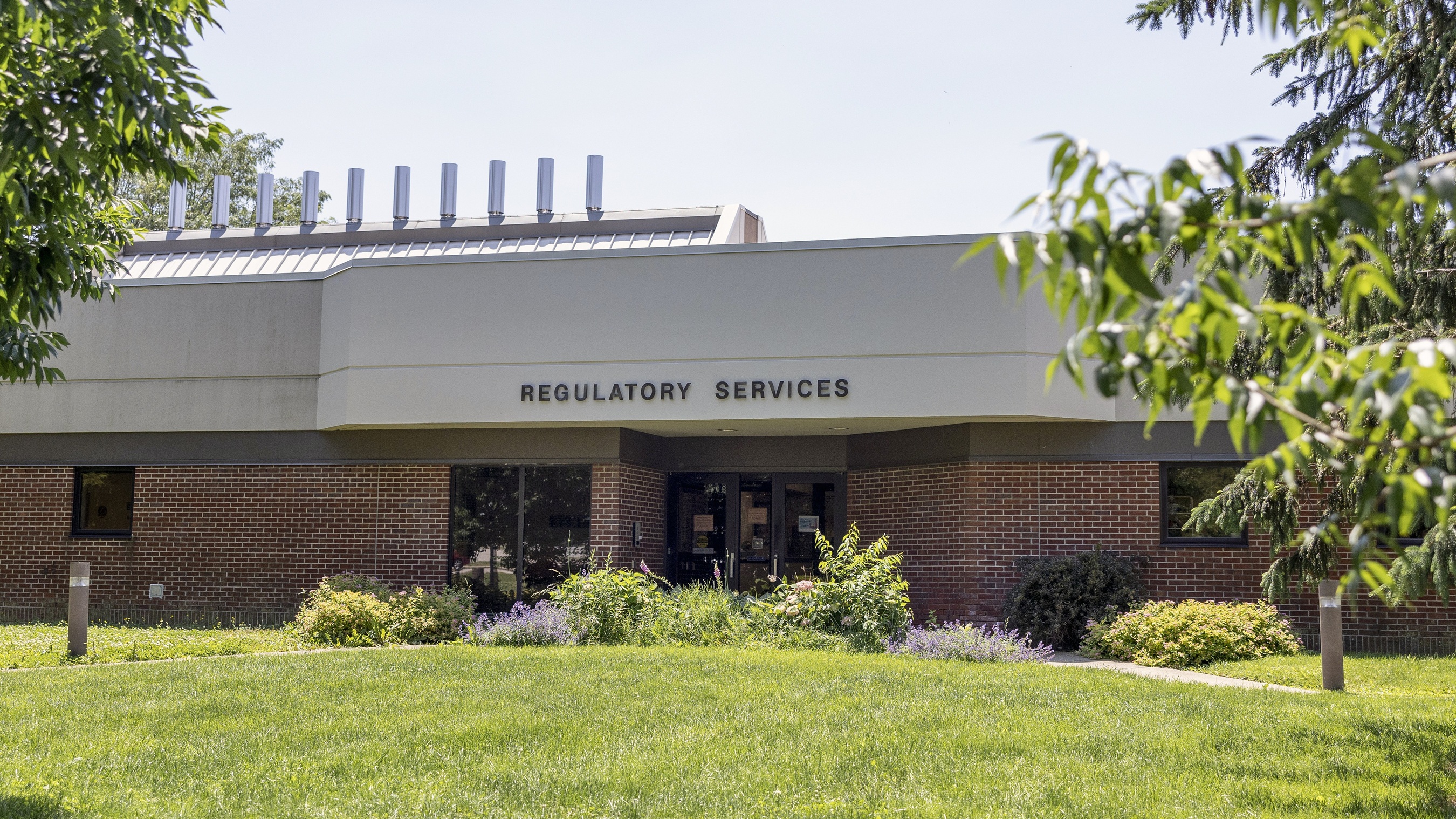

Tucked away in a one-story building on the University of Kentucky campus is a program that has quietly safeguarded the Commonwealth’s agriculture for over a century. While many people might be unfamiliar with it, the UK Division of Regulatory Services (DRS), part of the Martin-Gatton College of Agriculture, Food and Environment, is vital in protecting consumers, producers and the broader agricultural industry.
The UK Division of Regulatory Services administers four state laws pertaining to the regulation and quality of animal feed, fertilizer, seed and raw milk; these laws ensure Kentucky consumers have access to superior agricultural products. The division also partners with the Kentucky Department of Agriculture (KDA) to oversee agricultural lime and hemp testing.
“We help keep things fair for everyone — whether you’re a farmer buying fertilizer, a feed manufacturer trying to stay compliant or a consumer who just wants confidence in what they’re buying,” said Stephen McMurry, newly appointed DRS executive director. “If you’ve ever bought seed, feed or fertilizer in Kentucky, chances are our team helped make sure it was labeled honestly and met state and federal standards.”
A steadfast mission in a changing landscape
Despite its relatively low public profile, the division’s core mission has remained constant for decades: Protecting consumers by ensuring that agricultural inputs meet the label guarantees and that producers receive fair value for what they sell. In Kentucky, these responsibilities lie not with the state’s department of agriculture, as is the case in many states, but with the state’s land-grant university.
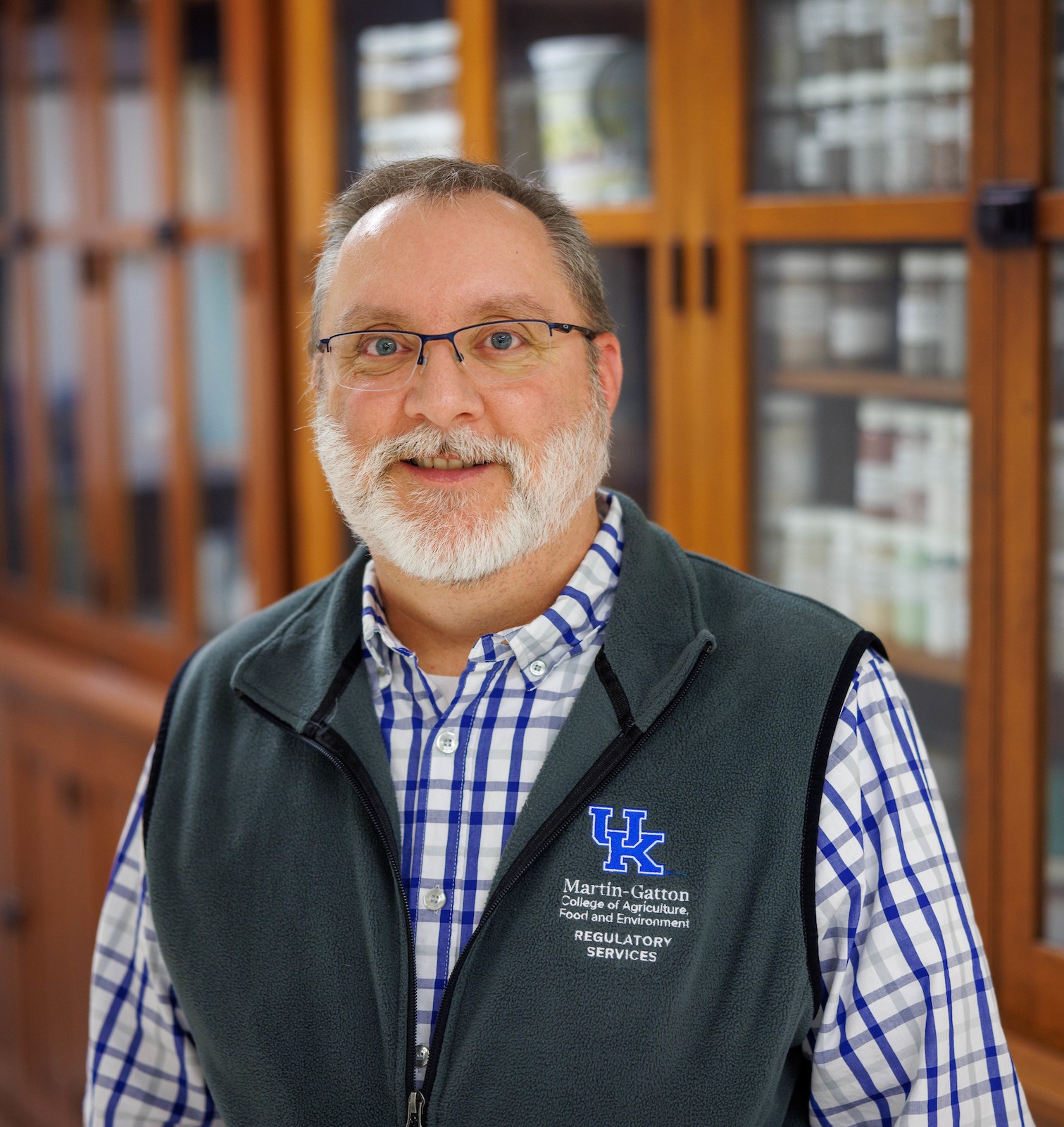
“Our first fertilizer law dates back to 1886, and enforcement has remained with UK since then,” said McMurry, who began serving as executive director in January 2025. “A number of states operate similarly, but it’s still unique enough that people are often surprised to learn our university has regulatory oversight in these areas.”
McMurry joined DRS in 1998 as a field inspector. Over the years, he has served in multiple leadership capacities, including inspection program coordinator, fertilizer program director and director of both fertilizer and seed programs. With that broad experience, he now oversees a team of approximately 50 individuals, including nine inspectors stationed throughout the Commonwealth who routinely collect official samples of feed, seed, fertilizer and milk for laboratory testing.
“In many ways, the best part of the work is being able to tell a farmer, ‘Yes, you can trust this product,’” McMurry said. “When our staff returns analyses showing that the feed or fertilizer they’ve purchased meets the label, that’s consumer protection at its finest—and producers appreciate that peace of mind.”
Ensuring a level playing field: Feed and Milk Program
One of the largest branches within Regulatory Services is the Feed and Milk Program, led by Alan Harrison. The program tests around 3,000 official feed samples each year to verify nutrient claims on everything from livestock rations to pet food. Around 200 loads of raw milk are also tested annually, and the milk haulers are evaluated to ensure that milk handling regulations are followed.
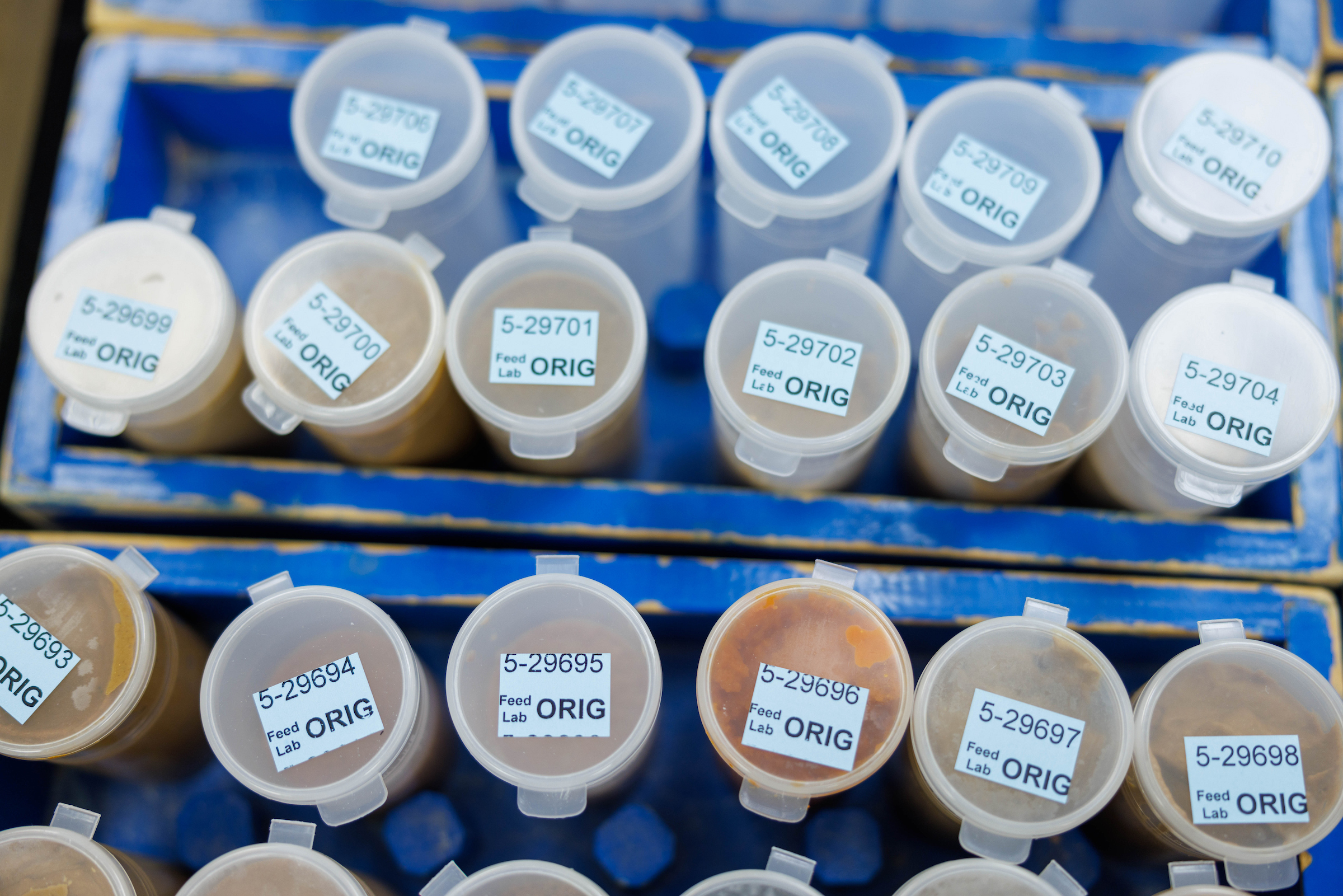
“We want Kentucky farmers and consumers to have confidence in what they’re buying or selling,” Harrison said. “Our fundamental job is making sure that no one in the marketplace has an unfair advantage. That means guaranteeing that feed labels are accurate and that milk producers get paid fairly.”
When feed tests come back above or below tolerance for labeled nutrients, Harrison’s team follows up with the guarantor or responsible company.
“We send a letter or email saying, ‘Here’s the problem; please investigate,’” he explained. “If it’s a small issue — say, the protein level is slightly off — they might simply need to re-label. If it’s a big problem — like a toxic mineral at high levels — we can issue a stop-sale so it’s pulled from distribution.”
That ability to halt sales underscores the consumer protection function at the heart of DRS. But Harrison also stresses that the approach is not punitive, but rather an effort to ensure fairness.
“We want to work with businesses and producers to correct problems,” he said. “We’re pro-business and pro-consumer. Striking that balance is our job as regulators.”
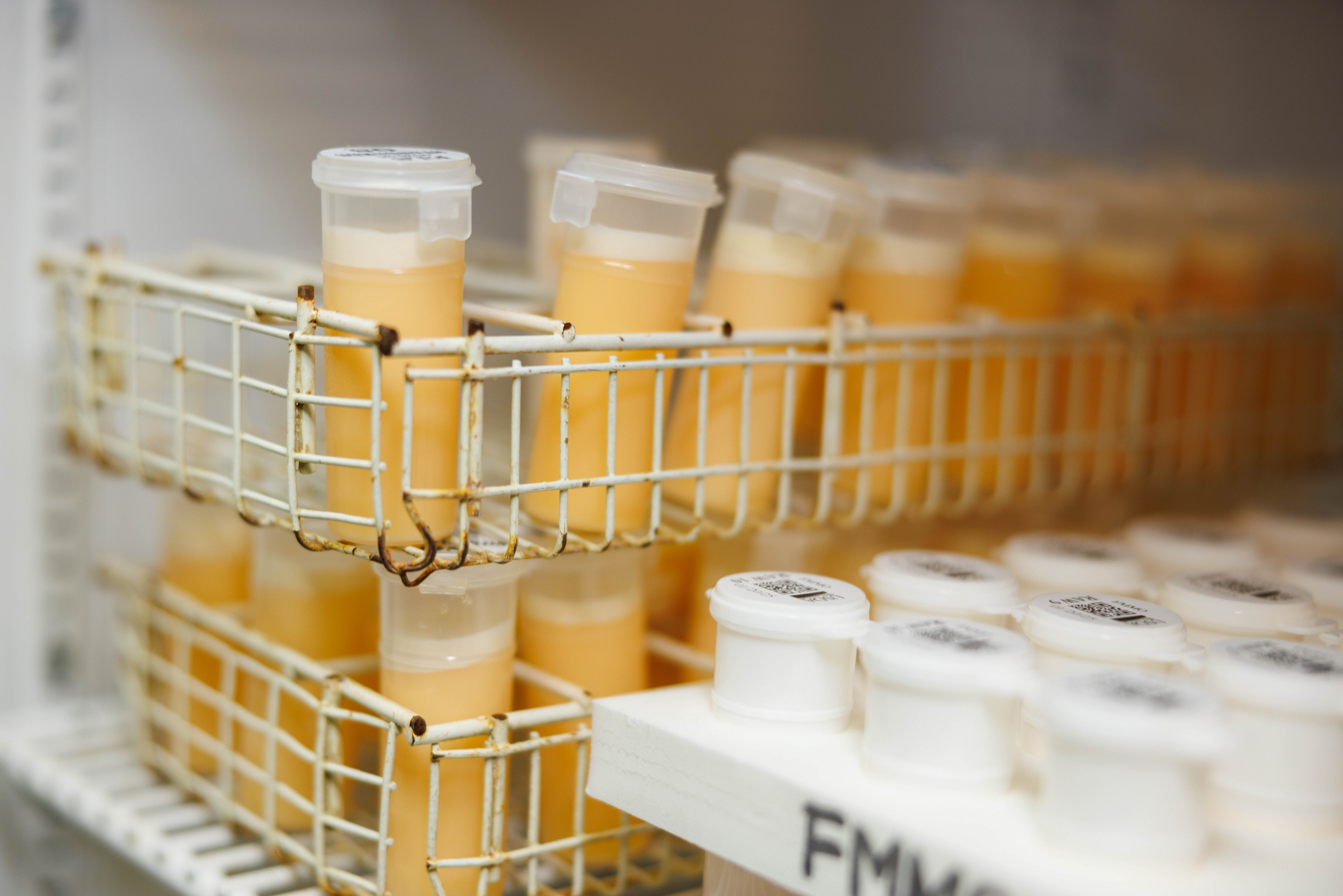
In addition to feed, Harrison’s group monitors raw milk samples to ensure that haulers and buyers accurately measure both the volume and the components, like butterfat or protein, in a producer’s tank.
“Milk regulation is our smallest program, but critical,” Harrison said. “If farmers aren’t fairly compensated for high-quality milk, they lose income. And if the buyer isn’t getting the composition they’ve paid for, that’s also an issue. We make sure no one is getting shortchanged.”
Preserving purity and viability: Seed testing
From big-box retailers to local farm stores, nearly every lot of seed sold in Kentucky is subject to routine inspection by the seed testing department. Jonathan Collett, the seed laboratory manager, oversees both the regulatory and the service (fee-based) sides of seed analysis.
“Our inspectors will visit every seed retailer in their region, whether it’s a mom-and-pop store or a major retailer, and collect samples,” Collett said. “We analyze those samples for purity, germination rates and noxious weed seeds. We verify the label claims. If a label says 85% germination, for example, we confirm that in the lab.”
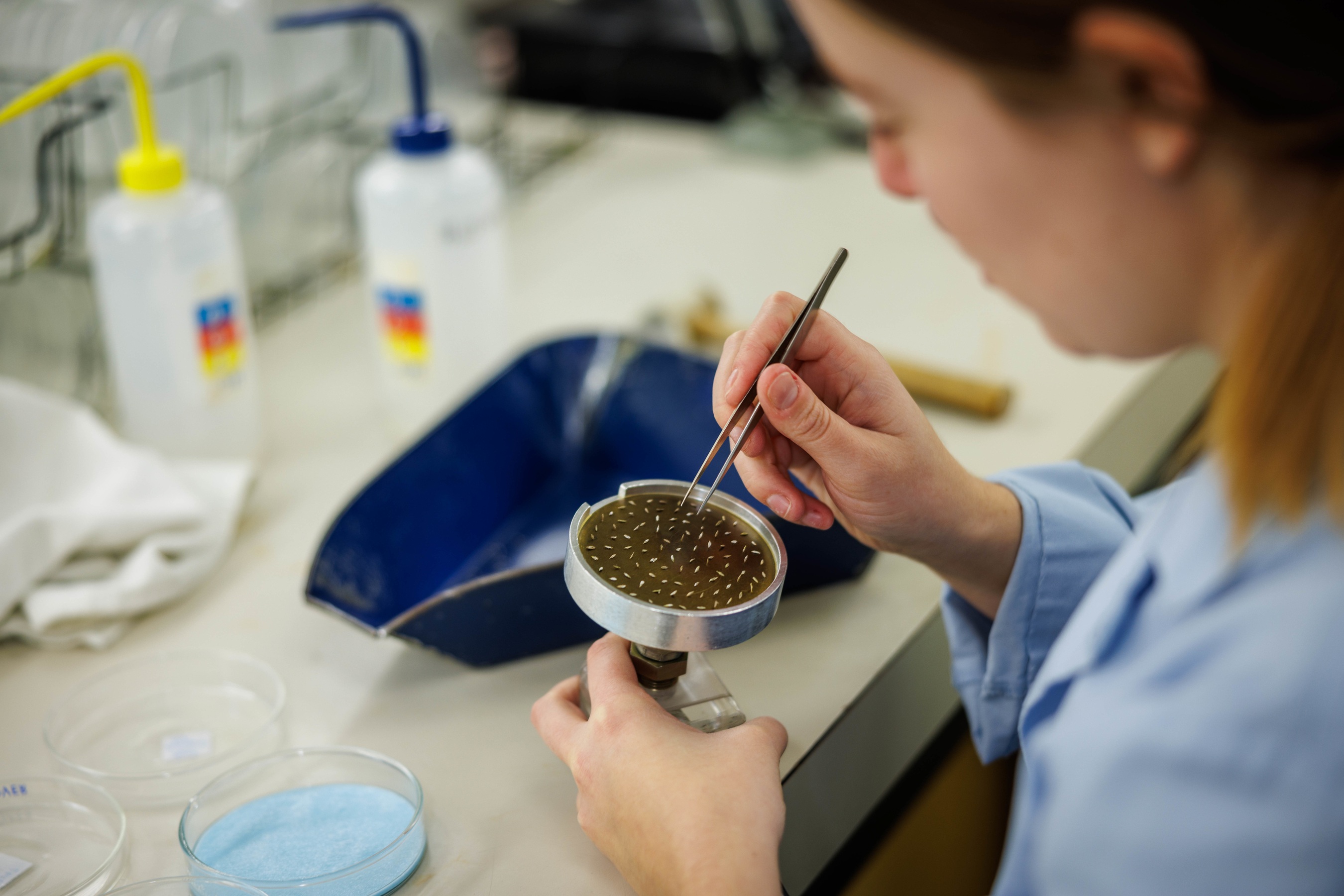
If seeds fail to meet labeled standards, Collett’s team notifies the seed control official who decides on next steps, such as issuing a stop-sale order. Throughout the process, analysts maintain strict separation between official regulatory sampling and private service work.
“We do similar testing for farmers providing a report of analysis for their homegrown seeds before marketing or to check quality before planting,” Collett said. “But in that scenario, a producer or seed company sends in samples voluntarily and pays a fee for the lab analysis. Our job is to provide accurate, timely results so they can label their product correctly.”
Kentucky’s diverse agricultural landscape means the state’s seed lab sees everything from forage crops like fescue and clover to row crops like corn and soybeans. Retailers also stock turfgrasses, small grains and dozens of garden vegetables. Collett’s team processes about 3,000 total samples — both regulatory and service — per year.
“Our goal is to protect the integrity of the marketplace,” Collett said. “When Kentuckians buy a bag of seed, they should have the highest confidence it’s pure, viable and labeled truthfully.”
Multifaceted laboratory services
One of the more diverse functions of the DRS is the laboratories and soils program.
Solomon Kariuki, now the director of laboratories and soils program in the division succeeds the retiring Frank Sikora. In his new role, Kariuki oversees the laboratories that test a wide range of agricultural materials for regulatory compliance or service work. He previously served as the laboratory manager for the Feed and Fertilizer laboratory.
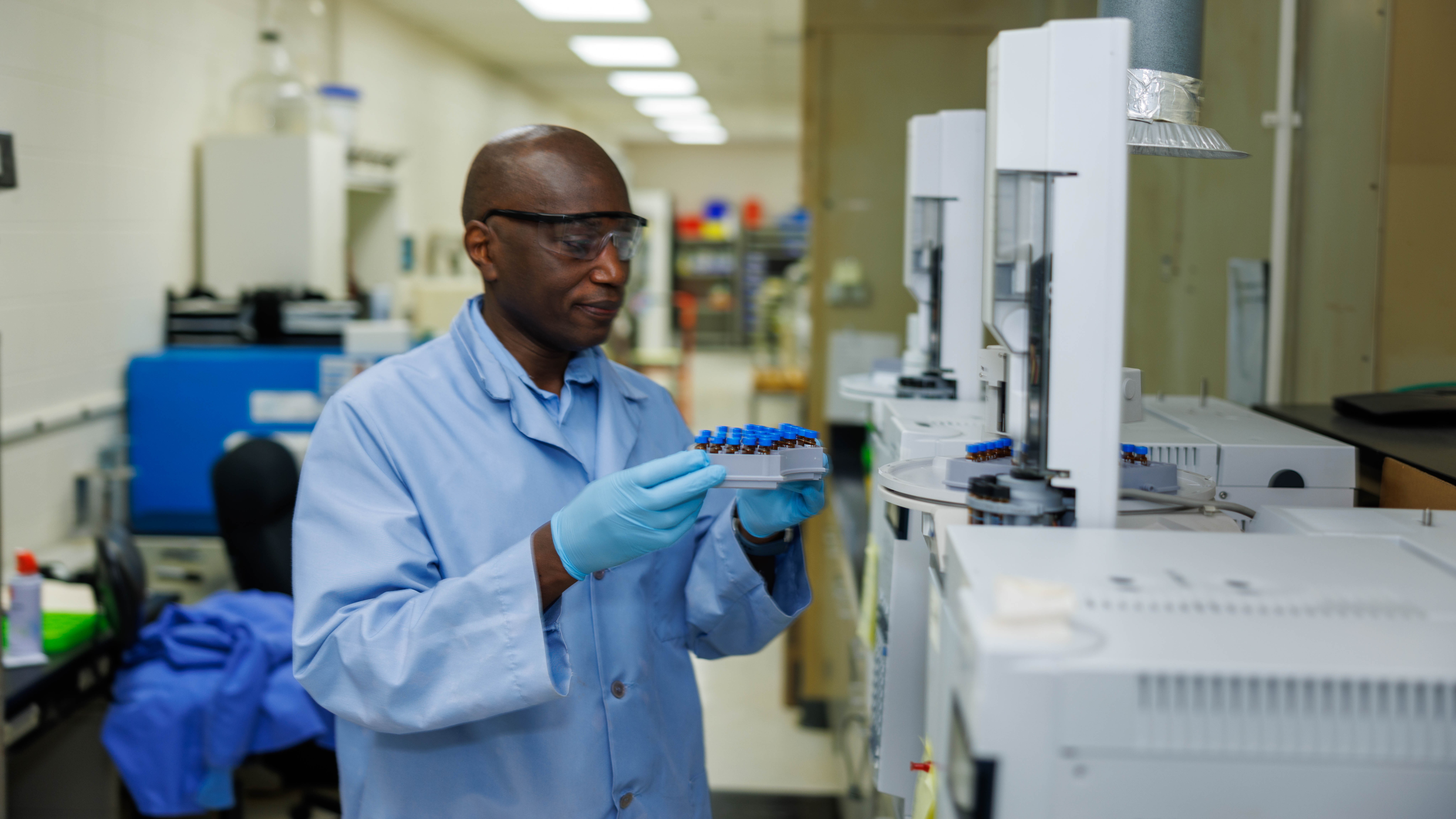
Animal feed, pet food, fertilizer, seed and bulk milk are tested for regulatory compliance under the state law. Samples are received from materials inspectors throughout the state and tested to ensure the products meet their label guarantees. This process protects consumers and promotes fair competition among manufacturers operating within the state.
Service testing occurs for soil and seed samples. Soil testing is a program managed in cooperation with the County Extension Service.
“Both our labs together in Lexington and Princeton process and test about 35,000 to 40,000 soil samples each year,” Sikora said. “County extension offices receive samples from ag producers and homeowners, send them to us, and we determine nutrient levels and pH. Then we provide lime and fertilizer recommendations tailored to the crops or lawns people intend to grow.”
By offering soil analysis as a public service, the DRS helps farmers optimize fertilization — saving money while preventing excessive nutrient runoff — and helps homeowners maintain healthier lawns and gardens.
DRS also tests hemp and ag lime in partnership with the Kentucky Department of Agriculture (KDA), which manages laws overseeing the commerce of these materials in the state. Hemp is tested to ensure the plant contains less than 0.3% tetrahydrocannabinol (THC), the primary psychoactive compound in the cannabis plant, verifying it is hemp and not marijuana. Ag lime mined and produced in the state is tested to evaluate quality, and results are published on the website.
Focusing on data accuracy and timely reporting is an essential aspect of the work.
“We have a full quality control process to ensure the analyses we release are reliable,” Sikora said. “We are very proud of the rapid and efficient generation of accurate results by the Laboratories and Soil Testing program.”
Future growth, lasting commitment
While day-to-day operations remain largely dictated by state law, McMurry and his team continually explore new ways to support Kentucky’s agriculture. In recent years, DRS has assumed lime and hemp testing for KDA. Now, they are collaborating with the Kentucky Agriculture Development Board, KDA and Martin-Gatton CAFE's Cooperative Extension Service to meet the analytical needs of Kentucky’s forage-based agriculture sector.
“We have to look for ways to be even more useful,” McMurry said. “Producers need accurate forage analyses, and we have the lab infrastructure to provide it. It could be a three-way effort with KDA and our Cooperative Extension Service to ensure it’s accessible to everyone who needs it.”
McMurry emphasizes that despite potential expansion, the division will stay true to its primary responsibilities.
“Any major changes usually come from law or budgetary adjustments,” he said. “Still, our guiding principle remains: consumer protection and a fair marketplace. We exist so that what people buy is what they actually get and that reputable businesses aren’t undercut by unregistered or substandard products.”
In many ways, the department’s dual role — as both regulator and service provider — enables it to safeguard agricultural industries across the state, making the DRS a critical component of Kentucky agriculture.
###
Writer: Jordan Strickler, jstrickler@uky.edu
The Martin-Gatton College of Agriculture, Food and Environment is an Equal Opportunity Organization with respect to education and employment and authorization to provide research, education information and other services to individuals and institutions that provide equal opportunities for qualified persons in all aspects of institutional operations and do not discriminate on the basis of race, color, national origin, ethnic origin, religion, creed, age, physical or mental disability, veteran status, uniformed service, political belief, sex, sexual orientation, gender identity, gender expression, pregnancy, marital status, genetic information or social or economic status.
Animal & Food Sciences Family Sciences Horticulture Plant & Soil Sciences Research

